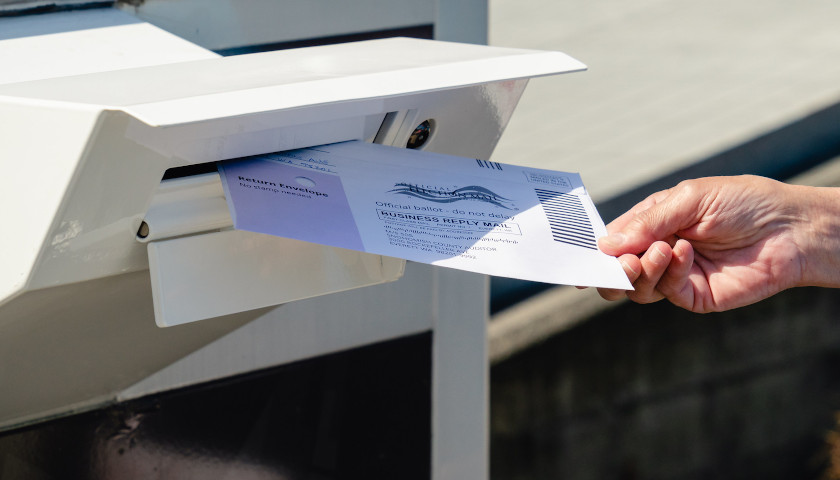Connecticut’s Democrat-controlled Senate this week sent legislation to expand absentee voting to Governor Ned Lamont’s (D) desk.
The bill stops short of total no-excuse absentee voting – which the Connecticut Constitution prohibits – but significantly broadens the categories of those permitted to mail in their ballots. Not only will eligibility apply to those who are ill, disabled or serving actively in the Armed Forces, but it will also include those who are absent “from the town of such elector’s or person’s voting residence; [during all of the hours of voting].” (This component largely pertains to the many state residents who work in New York City.)
Those caring for unwell state residents will also be permitted to cast absentee ballots under the legislation.
Thirty senators voted in favor of the bill while four, all Republicans, voted in opposition: John Kissel (R-Granby), Rob Sampson (R-Southington), Henri Martin (R-Bristol) and Dan Champagne (R-Willington). The measure also passed overwhelmingly in the Democrat-controlled House last week. Sampson unsuccessfully attempted to amend the bill to narrow its applicability.
Democrats meanwhile were unanimous in celebrating the legislation’s passage.
“Tonight I voted to make absentee ballots more accessible in Connecticut, even after this pandemic is over,” State Senator Will Haskell (D-Bethel) wrote in a Twitter post. “Because regardless of which candidate you support, voting should be convenient and accessible.”
The bill has caught national attention in light of concerns that the relaxation of rules for absentee voting could result in increased voter fraud.
“So disappointed as my Republican State Senator you voted for expanding absentee ballots in CT,” Fox News contributor Deneen Borelli tweeted at State Sen. Ryan Fazio (R-Greenwich. “Did you learn nothing from the 2020 presidential election???”
– – –
Bradley Vasoli is managing editor of The Connecticut Star. Follow Brad on Twitter at @BVasoli. Email tips to [email protected].
Photo “Mail in Ballots” by Cindy Shebley CC BY 2.0.








